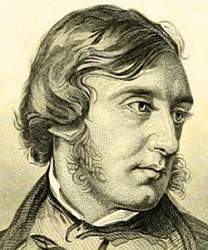Record Data
Original source
"The Civil Rights Bill," Harper's Weekly Magazine, March 31, 1866, p. 194.
Type
Newspaper
Date Certainty
Exact
Transcriber
John Osborne, Dickinson College
Transcription date
Transcription
The following text is presented here in complete form, as it originally appeared in print. Spelling and typographical errors have been preserved as in the original.
The Civil Rights Bill
The freedom of a large number of the inhabitants of the United States, formerly held as slaves, was recognized and confirmed by the Emancipation Amendment. But mere emancipation left the whole class in an anomalous condition, the consequences of which it was plainly the duty of the United States to remove. It became necessary to define at once the relation of the freed people to the rest of the population; and Congress has therefore declared that all persons born in the United States and not subject to any foreign power, excluding Indians not taxed, are citizens of the United States; and such citizens, of every race and color, and without regard to any previous condition of slavery, shall have entire equality of civil rights. Any person who shall deprive any inhabitant of any State or Territory of any right thus secured is declared guilty of a misdemeanor, and is punishable by a fine of not more than a thousand dollars, or by imprisonment for not more than one year. The various law officers of the United States, with the officers and agents of the Freedmen's Bureau, and other officers who may be authorized by the President, are charged with the duty of proceeding against all violators of the law.
This Bill of Rights is necessary, simple, and precise. It declares who are citizens, it defines their privileges, and provides for their defense. It pledges the whole power of the country to protect the civil rights of every citizen everywhere. It does not leave them to the whims of local communities nor to the prejudices of caste. It recognizes the right of the supreme soveriegnty to declare who are its citizens, and acknowledges the duty of that sovereignty todefend them; nor can any faithful citizen object that his fundamental rights are precisely defined and maintained by the supreme instead of a subordinate authority. The constitutionality of the law can not be questioned except upon the ground of a controlling sovereignty in the States over the nation, and that is a claim which is no longer valid.
This bill - which is truly a Magna Charta - overthrows all hostile legislation of the States against equality of civil rights. The Black Codes, which seek to retain as many of the disabilities of slavery as possible, disappear before this just and beneficent decree. It announces distinctly to those who would still cling to feudalism in America that feudalism is henceforth impossible. It tends to speedy pacification by showing to those who still doubted the national purpose that all the consequences of emancipation have been well weighed and fully accepted by the country. It destroys false hopes. It clears away misunderstandings. It proclaims that when the United States abolished slavery they meant what they said, and knew what they did.
The bill passed both Houses of Congress by enormous majorities. In the House of Representatives the vote was 109 to 38, in the Senate 33 to 12; and we see no reason to suppose that the President will dissent. We hope indeed that by the time this paper is issued the bill may have been approved by him and have become a law. We shall hear of that result with sincere satisfaction; for when once the President and Congress agree upon a vital and fundamental measure like this, a better understanding and further agreement will be much more probable and practicable.
Sensible men in the late disaffected States will also be glad that a vexatious question is thus put in the way of settlement. Mr. Stephens, of Georgia, in his late speech before the Legislature of that State, spoke very smoothly of the duty of giving the freedmen fair play.We have the right to expect his earnest support of this bill. Governor Orr, of South Carolina, and Governor Walker, of Florida, have shown great good sense in their action respecting the education of the freedmen; and they, too, will undoubtedly feel and acknowledge the wisdom of a measure which secures rights that they do not deny. And all citizens of the United States who understand that the country must and ought to be constantly agitated until the equal rights of every American citizen before the law are secured by the highest power in the land, will hail the bill as a measure of the wisest statesmanship, and an earnest of the national resolution that nothing which was really gained by the war shall be lost.





